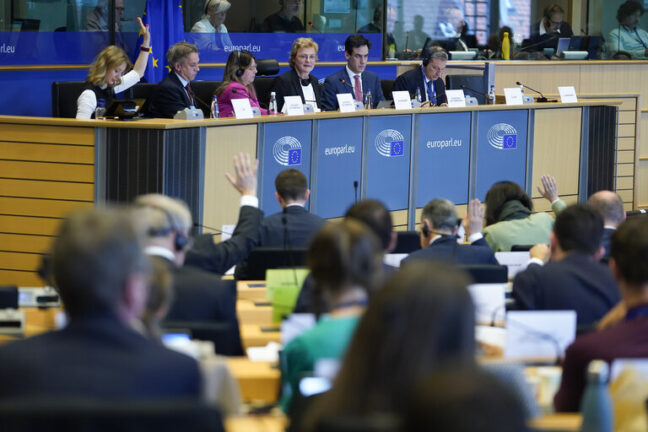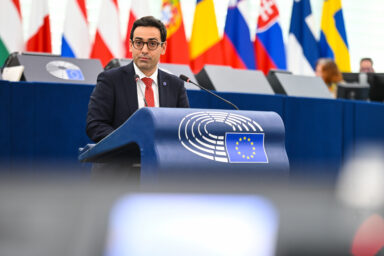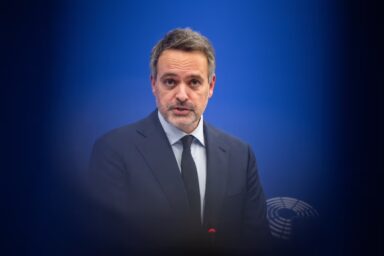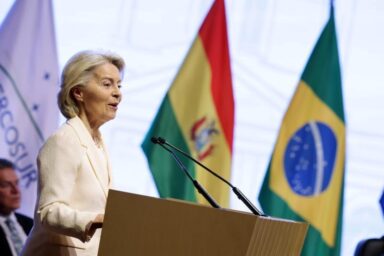The status quo is no longer a realistic option. That is the baseline of the European Commission‘s thinking of the future European budget as outlined in its February official communication. The budget is to take effect only in 2028, but preparations for the Union’s biggest ever reform of the distribution of finances are already afoot in Brussels.
While any concrete proposal is yet to see the light of day, it is already clear that the budget will be more ambitious than its predecessors in every respect. It is no less clear, however, that finding its definite form will be extremely difficult.
So far, the Union has managed an annual package of over €1tn. In the next seven-year period, this amount is likely to increase dramatically. “As the United States retreats from its global role, spending will need to focus on Russia’s war against Ukraine, the challenging economic and social environment, the decline in competitiveness and the worsening climate and biodiversity crisis,” reads a fresh report by the European Parliament’s Committee on Budgets.
The committee has clearly supported the loftier ambitions of the new Multiannual Financial Framework, as the budget should be “able to meet the rising expectations of EU citizens in a rapidly changing global environment”. The current spending ceiling of one per cent of the member states‘ gross national income (GNI) is clearly not sufficient to address the growing crises and challenges, the document says.
You might be interested
A total of 23 MEPs voted in support of the committee’s report, nine were against and two abstained. Through its budget committee, the European Parliament has thus for the first time indicated its priorities concerning the next financial framework.
A pandemic inspiration
In some respects, the report fully supports the ideas sketched out by the Commission in the ambitions for the next seven years, it opposes the EU executive arm in other respects. In particular, this concerns the original idea that the five dozen existing fragmented financial programmes should be replaced by new merged funds.
The Commission argues that the new order should align European funding more closely with the bloc’s policies and objectives. “The new approach to a modern European budget should have at its core a plan for each country with key reforms and investments, focusing on our common priorities, including the promotion of economic, social and territorial cohesion,” the Commission said in February, adding that the simplified system would also include regional funds and agricultural subsidies.
The Commission’s “one national plan per member state” model takes a page off the book of NextGenerationEU, the system of common loans financing the bloc’s post-pandemic recovery. MEPs on the expert committee have soundly rejected it. Instead, they call for a structure ensuring transparency, parliamentary scrutiny and the involvement of regional and local authorities, and all relevant actors.
The committee’s report also stresses the continued importance of cohesion policy in promoting economic, social and territorial cohesion, deepening the single market, reducing inequalities and combating poverty and exclusion.
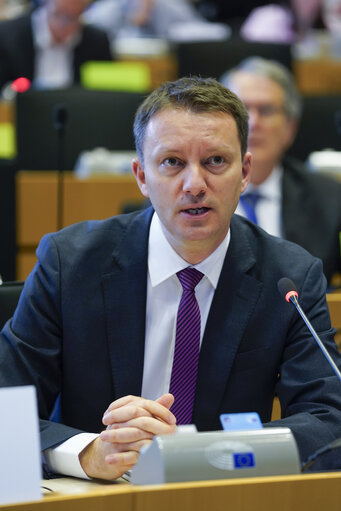
“We reject the Commission’s ‘one national plan per member state’ model, which we consider inappropriate for managing spending in member states. The vote shows that the European Parliament’s Committee on Budgets is united and ready to draft the next EU budget,” said one of the rapporteurs of the motion, MEP Siegfried Mureşan (EPP/RO).
He also said the committee was calling for a budget that better reflects the Union’s new priorities, such as competitiveness and defence, but which also sufficiently protects the long-term ones, namely agriculture and cohesion. “We therefore call for a responsible and justified increase in the next Multiannual Financial Framework and for the ceiling of one percent of gross national income to be overcome,” Mureşan added.
Crunch time
At the very beginning of the process, the Commission likened the effort to accommodate all priorities to “squaring the circle”. Specifically, the Commission said in February that every euro would have to be used with maximum efficiency, with a focus on those key priorities where it is the European level what achieves the most efficient solutions.
“The EU budget will not be able to match our ambitions and ensure that NextGenerationEU is repaid while keeping the member states’ budget contributions stable without introducing new own resources. A decision needs to be taken,” the Commission commented in February.
As an aside, the repayment of the debts incurred during the covid-19 pandemic alone amounts to €30bn a year, representing 20 percent of the current annual EU budget. That is “an unprecedented financial burden that will force the EU to reassess the overall contributions of member states,” the Financial Times wrote earlier.
But MEPs have now stressed that repaying the cost of NextGenerationEU loans must in no way jeopardise the funding of key EU priorities. The committee’s report therefore calls for a clear line separating the repayment of loan costs from spending on individual programmes. The MEPs called on the Council of Ministers to find new and reliable sources of funding for both the loans and the Union’s higher spending.
“We need strong investments to boost strategic autonomy, economic resilience and environmental objectives, and no one must be left behind. An ambitious budget must also promote social and territorial cohesion, include new and modernised sources of revenue, and ensure sufficient funding for security, defence and preparedness as a pillar for fair and prosperous societies, while upholding the rule of law and the EU’s fundamental values,” said MEP Carla Tavares (S&D/POR), the proposal’s other rapporteur.
The committee then described joint loans per se as “a viable option for dealing with large-scale EU crises, such as security and defence”.
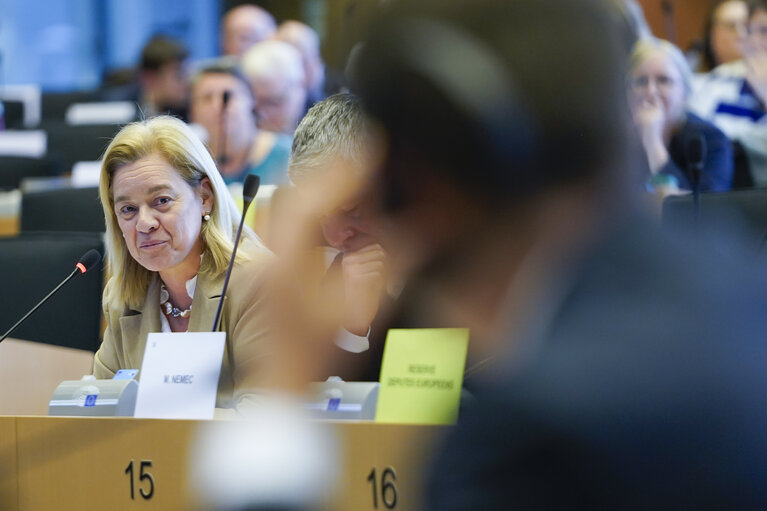
Ideas to that effect do exist. One of them, central borrowing, has lately found an advocate in Spain. Madrid actually called on Brussels in April to break one of the Union’s deep-entrenched taboos, to force member states to take responsibility for the obligations of others. In practice, this could double the budget’s spending capacity, according to earlier reports by Politico.
Apart from Spain, the idea of more common debt is also popular in France and Italy. However, it has long been strongly opposed by net contributors to the budget, notably Germany, but also other—predominantly northern—European countries. These do not wish to bear the financial responsibility for higher borrowing costs of governments perceived as less fiscally disciplined.
The so-called frugal countries have therefore described the Spanish proposal as a dangerous path towards a “fiscal union”, where the Commission would permanently take on debts on behalf of all 27 EU members. Indeed, the European Budget Commissioner has already rejected such a possibility during his November parliamentary hearing.
Financing and reforms
In its February proposal, the Commission envisaged that any plan for each country would have to go hand in hand with substantial reforms and investment. In practice, this would give national governments more freedom to decide on projects, including some that have traditionally been negotiated at local government level with Brussels.
A European competitiveness fund would boost investment in key sectors and joint projects, the Commission said, while a “reformed” foreign policy fund would be “better aligned with EU‘s strategic interests”, according to earlier reports in the Financial Times.
These two funds, as the Commission’s initial ideas had it, would allow the EU to commit a much larger share of its budget to cross-border defence projects. Those, until recently, have not been a priority for EU funds.
The Commission justified the need for a radical ovehaul of the entire system on the grounds that the current mechanisms for allocating funds were too bureaucratic and slow in approving individual projects. After all, the EU is now in the middle of its current seven-year budget cycle, but at the time of the publication of the commission’s proposal, only 6.4 per cent of regional funds had been spent, the Financial Times previously pointed out.
Negotiating budget packages with member states would simplify the process and allow Brussels better to monitor the degree to which individual projects meet overall reform objectives, the Commission claims. This could ultimately limit the influence of local and regional authorities on the use of EU money.
Untouchable agriculture?
The European Parliament’s budget committee has now spoken out against the Commission’s proposal to merge several existing programmes into a competitiveness fund. That is not enough, the MEPs say. Instead, they call for a new, targeted fund that would leverage public and private investment through EU risk-sharing mechanisms.
“The report also stresses the need for increased investment in defence to support a comprehensive security approach, but warns that this must not compromise social and environmental spending, or traditional policies,” Eszter Zalan, a spokeswoman for the European Parliament, on the committee’s position, commented.
The mention of “traditional policies” in this context may turn out to be a major sticking point. There’s a word around Brussels that the common agricultural policy, for example, should be cut in order to increase defence spending.
Agricultural subsidies account for up to a third of the European budget, and the common agricultural policy is one of the oldest and most traditional in the EU. This is one of the reasons why the agricultural lobby in Brussels is extremely influential, and why any cuts in subsidies might not be passed at all.
Unanimity is needed in the Council, and some countries in particular do not hesitate to use the threat of a veto to obtain various advantages. The last time Hungary blocked the approval of the budget in this way, it demanded relief from the unrelenting Commission’s needling—something Budapest had earned by violating the rule of law—in return for its support. À propos, the last Union budget took over two years to negotiate.
Apart from agriculture, a third of the budget goes to the bloc‘s least developed regions via the cohesion policy, with the rest covering everything from foreign aid to EU staff salaries.
Reducing red tape as a priority
In their final report, MEPs on the budget committee argued, among other things, for the next long-term budget to cut all unnecessary red tape for recipients of EU monies. At the same time, the committee agrees, the budget must not give more wiggle room to the Commission without proper parliamentary scrutiny.
A simpler budget must also be more transparent, MEPs stressed, according to Ms Zalan, the spokeswoman. “The report underlines that the draft budget must protect the role of the Parliament in keeping checks and balances in place; introduce strict accountability mechanisms; and ensure full transparency on the final beneficiaries of EU funds,” she said.
Committee members also stress as crucial that the next financial framework spending be flexible, especially with regard to dealing with emergencies. “The capacity to respond to crises must be part of the long-term budget for each policy area, with humanitarian aid earmarked separately,” Ms Zalan pointed out.
Thus, the budget should include two specific instruments, one for disaster relief and another for other unforeseen challenges, according to the MEPs’ report. Meanwhile, the approved document insists that access to EU funds must be conditional on adherence to EU values and the rule of law. It also advocates for a clever conditionality mechanism so as not to punish beneficiaries for the actions of their governments.
For example, the Socialists believe that the next multiannual financial framework must promote a stronger social Europe. This is to be achieved, among other things, by modernising and decentralising the cohesion policy, focusing on a more sustainable, competitive, and fairer economy as well as society at large.
“At the same time, it must tackle challenges such as green transformation, as well as security, defence and preparedness, which are essential pillars of a healthy and prosperous society. In addition, an ambitious budget must explore new and modernised sources of revenue, including joint borrowing, so that the Union is sufficiently equipped to meet the needs of its citizens,” Ms Tavares summarised the Socialist Group’s position.
The plenary of the European Parliament is scheduled to vote on the budget committee’s report during its first session in May, and is expected to approve the outlined theses easily. This would then clearly set out MEPs’ priorities and provide the basis for the European Commission’s detailed budget proposal. It is to be tabled this coming July.
